What our PhD Graduates Say
Read what our graduates say about studying for a PhD in the Educational Research Department at Lancaster University.
Read what our graduates say about studying for a PhD in the Educational Research Department at Lancaster University.

Returning to academia after a long break was daunting especially with the reality of adding doctoral studies to the work/life/ family balancing act. However, I was committed to the mission. The Education and Social Justice (ESJ) PhD program was a rigorous and stimulating one that offered me the opportunity to work with brilliant, knowledgeable professors and engage with an international community of scholars. It fostered a collaborative environment, despite students being located at a distance, which is especially important for PhD students who can sometimes feel isolated during their research.
The program enabled me to critically examine the complex relationship between education and social justice as I drew upon expertise from a wide range of disciplines, including law, philosophy, sociology, education, and cultural studies, among others. I developed a deeper understanding of the social, cultural, and political factors that shape educational practices and institutional policies. One of the program's key strengths is its impressive faculty, which includes renowned scholars in the field of ESJ, and the strong supervision I received which had a significant influence on my research. The supportive and courteous departmental staff enhanced the overall positive experience.
Doctoral studies took discipline and great sacrifice, but it has enriched my life personally and professionally. I highly recommend the ESJ program as an excellent option for those who are looking to return to academia to pursue advanced studies in this field.
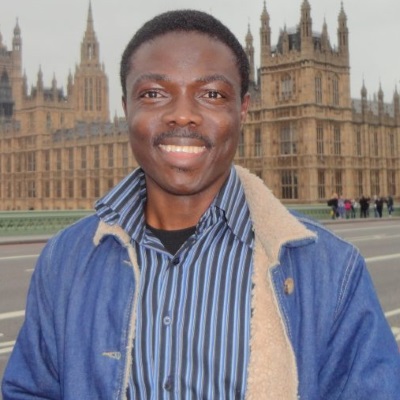
My PhD in Education and Social Justice at the Department of Educational Research has been an exceptional one. The quality of support and supervision has been outstanding. This contributed to the quality of the outcome of my work as well its speed of completion. It is amazing to be simultaneously studying from my country of residence and engaging in diverse kinds of research consultancies and yet, able to timely complete a PhD in four years. Some of the reasons lie in the structure of the programme, its flexibility and the support provided by the departmental staff. Besides the academic skill development and expansion of my capacity, I was also fascinated by the support I received beyond my academic work. Right from my first year in the programme, I began to receive inputs into my research from the tutors which helped me win some competitive research grants and excel in my work. I also enjoyed opportunities to collaborate with leading professors in the department to engage and negotiate partnership with some influential organisations. Additionally, I have benefitted from a number of students’ bursaries and opportunities. The university offered me some grant to complement a grant offered by the AHRC North West Consortium Doctoral Training Partnership to enable me to attend its 2019 conference. I also benefited from the ESRC funded Researcher Led Collaboration Lab project.
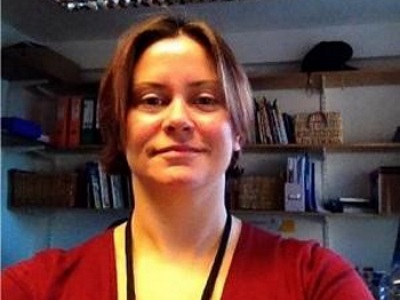
I have been a member of the online PhD in Education and Social Justice at Lancaster and it has been a really wonderful experience. Studying at a distance has not disadvantaged me in any way. The tutors have been as available, as supportive and as responsive as they would have been were I a resident student on campus. The discussion fora, skype supervision and online activities – undertaken both as individual and group activities within my cohort – have been superb. The chance to discuss and engage with researchers passionate about their subjects has been a real pleasure.
This course has opened my mind to so many theories and perspectives on social justice and education that I now view the field in a much more complex way. Part 1 of the course enabled me to explore several areas in depth before deciding on my main area of study for part 2. The freedom to explore new areas of interest and develop my thinking throughout has been one of the best aspects of the course and as a result I have completed a thesis which is meaningful to me and will feed into the next steps of my career. I cannot recommend this course and the Department of Educational Research highly enough.

A chance exposure to the PhD Education and Social Justice programme at Lancaster University made me realise that nothing happens before its time. As the research interests within the parent department mirrored my own, the setting was opportune for me to enhance my thematic niche. Indeed, the taught modules of the programme provided me with a foundation for self-directed research, and the mode of delivery allowed me to pursue my career and educational goals with minimum discord. In the wake of the Covid-19 pandemic, the programme has also fostered increased collaboration across programme cohorts, which equally addresses the isolation that often emerges during PhD studies.
What I appreciated the most about my PhD experience at Lancaster, was the quality of research supervision that was provided within the Department of Educational Research. Not only did I receive ongoing encouragement from my supervisor to keep ‘putting pen to paper,’ but I was firmly and politely guided towards research ownership. I was reminded that as the research was my own, and thereby mine to defend, it needed to reflect the passion that was evident in my discourse on the research subject. Ultimately, the onus is on the individual student to maintain the level of self-discipline that is required to navigate the programme successfully. For me, the process became less arduous, as I received a level of academic and administrative support that bolstered that of my personal network, and proved that I was not just an entry on a student listing. In essence, I also remain greatly appreciative of the follow-up that was initiated by the department’s administrative staff, on issues that ranged from my programme enquiries to my work-related decisions. To prospective students who are considering the programme, I recommend it wholeheartedly.
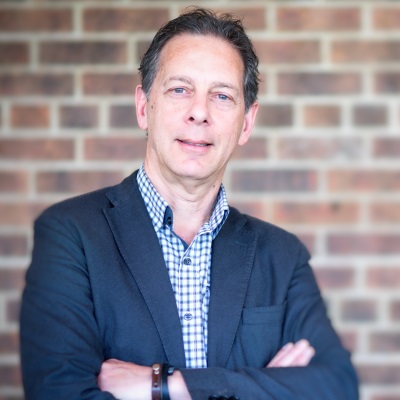
I’m a proud graduate from Cohort 1 of the Doctoral Programme in Education and Social Justice (ESJ). When investigating potential programs I was nervous about returning to study after a very long hiatus. I was concerned about meeting the requirements while working fulltime, and especially reticent about studying online. I chose Lancaster because it offered what I was looking for: opportunities to expand my knowledge in theory and practices relevant to my professional background and job. I was particularly enthused about opportunities to hone my research and writing skills by submitting assignments deemed of a publishable quality. While the asynchronous online learning environment was a unique, and at times challenging, experience the substantial support offered by peers, instructors, and support staff was extremely satisfactory. Moreover, as I oversee an undergraduate online program at work, my experience in the ESJ program provided tremendous insights (and compassion) for the challenges and rewards faced by my students.
When I announced my intention to do a doctorate many people "warned" me of its adverse consequences, particularly as I was at a more advanced stage in life. I didn't suffer any of these adversities, but my personal and professional life has grown significantly. From my coursework and thesis research I’ve published in several peer-reviewed journals, presented at conferences, established collaborations, and attracted funding for new research. This wouldn't have been possible without the experience of studying in the ESJ program. It was a joy from start to finish, and beyond!

Dr Joseph Collins has nearly twenty years experience in higher education and is a proud graduate of the PhD in Higher Education: Research, Evaluation and Enhancement. Professionally, he is the Head of Faculty of Lifelong Learning at Institute of Technology Carlow. The role is wide and varied but ultimately very rewarding as it facilitates the higher education of adults and fosters a culture of lifelong learning for personal, community and professional development. He is a strong advocate of lifelong learning as a means of promoting human agency for personal and collective empowerment. He has a deep interest in policy development in adult education and lifelong learning. Involvement with different communities and widening participation to non-traditional students are two areas of his work for which he has a passionate interest. For Joseph, the PhD programme at Lancaster University was a great opportunity to study in one of the best Education departments in the UK and the opportunity to study part-time whilst working full-time was a huge benefit and the support from the team in Lancaster meant that it was very doable in 4 years.

Melissa was a member of the Higher Education: Research, Evaluation and Enhancement PhD programme. There's a link below to a four minute video where you can hear Melissa’s comments and advice about the PhD programme. Here are some comments from the video:
"Part 1 is structured learning, with the modules, and those prepared me really well for Part 2 which is the research and dissertation. I kept [Part 2] as structured as I possibly could given the nature of it. I created my own deadlines in Part 2; self-imposed milestones. My supervisor was wonderful… and she was always quick to respond and to work with me … She knew that I was very task orientated, and that really helped. I cannot say enough about having a strong supervisor who understands how you work, recognising that they have their own work to do. It was a wonderful programme for me. It really fit my life. The team approach in Part 1 really helped to get a number of different perspectives and build up your confidence. And then moving onto the second part, it was taking all that learning and applying it… You have a wonderful team in the programme who want to see you succeed".
Please note, these graduates all studied on the programme prior to the revisions made for students starting in January 2023.
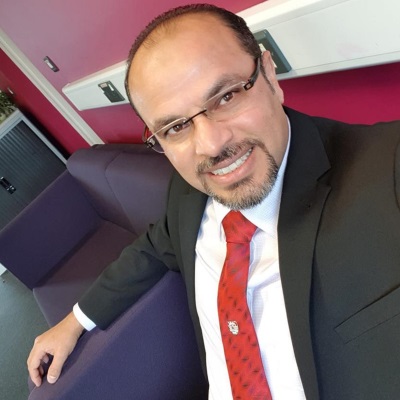
Completing my PhD at Lancaster University in E-Research and Technology Enhanced Learning has been a transformative experience at all levels: personal, professional, and academic. The program design, administrators, tutors, and my fellow cohort 7 PhD candidates have all been amazing. I will never forget Professor Don Passey's - Director of Studies - statement on the first day of the first residential: “We are here to help you succeed!”. It was more than a statement that was always translated into actions. In fact, it was a governing policy for all program participants.
The fact that our tutors were approachable - in addition to being knowledgeable and subject matter experts – always turned the challenging experience into an opportunity for elevation and genuine learning. Further to that, working with a group of highly-motivated programme mates created an environment of teamwork and support. I will never forget all support I especially received from my colleagues when I lost my father mid the program and how they made me stand up again and move forward.
At the end, I would like to sincerely thank all programme academic team and colleagues for the quality of support and supervision, and I look forward to seeing Lancaster university ranked even higher at the world university ranking.
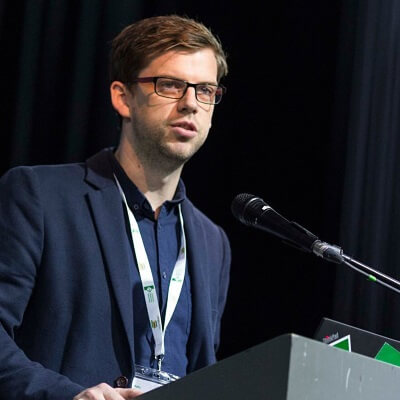
Studying on the PhD in e-Research and Technology Enhanced Learning programme has been one of the most challenging, but rewarding experiences I have ever engaged with. The structure of the programme is fantastic, helping to build you knowledge (and confidence) of successfully undertaking a research project and seeing it through to completion, and the team in the Educational Research department are well equipped in helping you take your first steps in the ‘mystical’ world of studying for a PhD. Part One of the programme definitely prepares you for the larger ‘thesis’ research you will undertake, by getting you to engage in small-scale research projects so that you can experience the research process in its entirety. Then, when you get to Part Two and start your thesis research, the process is already so well in-grained into your mind-set that you will be able to explore your area of interest with confidence. You also get to meet some fantastic people studying with you from a range of disciplines across the world and build up a learning environment that is collaborative, engaging and supportive, and I have already recommended this programme to several of my friends, who are now seeing the benefits of the programme for themselves. Studying on this programme really is one of the best decisions I have ever made.
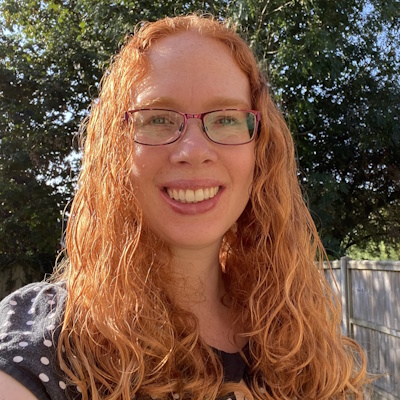
Completing the PhD in Technology Enhanced Learning and E-Research has strengthened my focus on taking an evidence-based approach to my work as Head of Digital Education. With a background in Computer Science, I joined the programme having never formally undertaken research in my prior qualifications. I had developed an interest in research as a result of conducting small scale research projects during my time as a Learning Technologist and was keen to take this further. I found the programme gave me a good grounding in research methods, methodologies and ethics that are still useful today. Part one of the programme is structured into separate modules which enabled me to try out different research approaches and explore a range of topics. It led to my first solo publication of one of my module papers in the Higher Education journal. Working on my thesis in part 2, I was well supported by my supervisor and my peers on the programme. The cohort-based approach to the programme enabled me to develop a community of peers that was vital for supporting my progress.
The PhD has definitely opened doors for me in my career. I have developed experience in research ethics through membership of ethics committees, and progressed to a role as a Senior Lecturer, supervising Master’s dissertation students. It also featured strongly in my successful applications for Senior Certified Member of the Association for Learning Technology and Principal Fellow of AdvanceHE (PFHEA). I would recommend this programme to anyone who is looking for a PhD; the structured doctorate approach is well supported and gives you a good grounding before you undertake your main research.
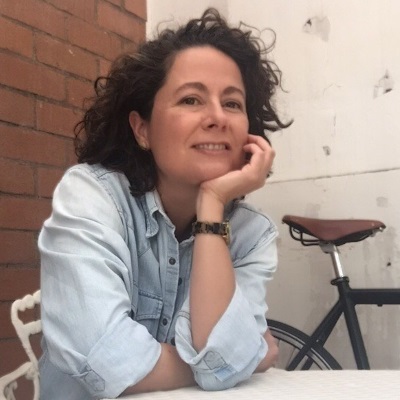
Studying at the Educational Research Department was definitely a challenging and fulfilling experience that manifests every day in my work as an academic and in my personal life. I had a supporting and welcoming supervisor from whom I learned the importance of tutor-tutee relationship and who guided me through a satisfying distance PhD journey. My experience at the Department allowed me to develop strong theoretical and methodological foundations to continue growing and contribute to my workplace. Because of this I have felt in the position to accept new challenges, willing to add significantly to projects I am involved in. At the moment I am working for two universities in Chile in educational programmes where I have the opportunity to teach future professionals and also to carry out research related to areas that are in need of knowledge generation and expansion in my country. Today I am also the Chilean Lancaster alumni coordinator which has allowed me and other Chilean graduates to keep in touch and remember Lancaster in our annual meetings. My experience at the Educational Research Department is undoubtedly one I treasure and would therefore highly recommend pursuing a postgraduate degree at the Department.

I studied towards my PhD in Educational Research between 2015 and 2018. As a distance and part-time student, supervision was very flexible, which enabled me to fit my studies around my work commitments. Whilst mostly utilising Skype for monthly supervision meetings, whenever I visited the campus I was always struck by the warm and friendly reception from my supervisor and the other staff in the Department.
Having worked as a researcher prior to and during my studies, I have benefitted considerably from the opportunity provided by doctoral study to gain a greater theoretical understanding of the world around us. Whilst a reluctant theorist, I feel that this has equipped me with the tools I need to develop and progress in my academic career. The opportunity to dedicate a significant period of time to a research topic I am passionate about is something that I will always be grateful for.
Lee_400x400.jpg)
I earned my PhD (traditional route research) in April 2019 and I am currently a senior lecturer at the Department of Communication, Sunway University Malaysia. The PhD in Educational Research programme at Lancaster University was a great opportunity to study in, as one of the best Education departments in the UK. I joined the Department of Educational Research in September 2016 to take up a PhD investigating the uses and impacts of Facebook for teaching and learning in university classroom education. Studying at the Department of Educational Research was definitely a fulfilling experience, and it is certainly one experience which I cherish. As a full time academic in Malaysia higher education institution, I did not have the privilege to study full time at Lancaster. Yet, studying away has not disadvantaged me in any way. I was fortunate to have received the Joint Scholarship Postgraduate Award from Sunway University (Malaysia) and Lancaster University (UK) which enabled me to travel to Lancaster for a short period of time to concentrate on my writing. Whether I was on campus or study away in Malaysia, I obtain a huge amount of support from my supervisor and staff from the Department who always did their best to support me. My supervisor was wonderful as he was always quick to respond to my queries. I cannot say enough about having a strong supervisor who understands how you work, continuously support and provide invaluable advice and comments on my drafts of thesis chapters. I would highly recommend pursuing a postgraduate degree at the Department of Educational Research, Lancaster University.

I was a traditional route PhD student and I started almost straight after completing my Master's Degree. I wanted to experience the traditional journey of gaining a doctorate. Choosing Lancaster University wasn’t a difficult decision. I knew as soon as I decided to pursue a PhD in Educational Research that Lancaster has an incredible impact on the field of Education. I was blown away by the calibre of the research produced by the faculty in the department and I wanted to be a part of that rich and progressive research environment.
Completing a PhD was a task that I, on many occasions, thought impossible. But it taught me resilience and perseverance; it taught me the importance of getting things wrong, of learning from mistakes. My professional and personal life have grown significantly as a result of undertaking a PhD, and I owe my current career path and my passion to my doctorate and the importance of the research I carried out. The whole experience gave me confidence that I will carry with me for the rest of my life. It helped me to believe in my passion, my knowledge and, more importantly, myself.
I don’t believe I would have come through the experience with the academic and life skills I have now if I had chosen anywhere other than Lancaster University.